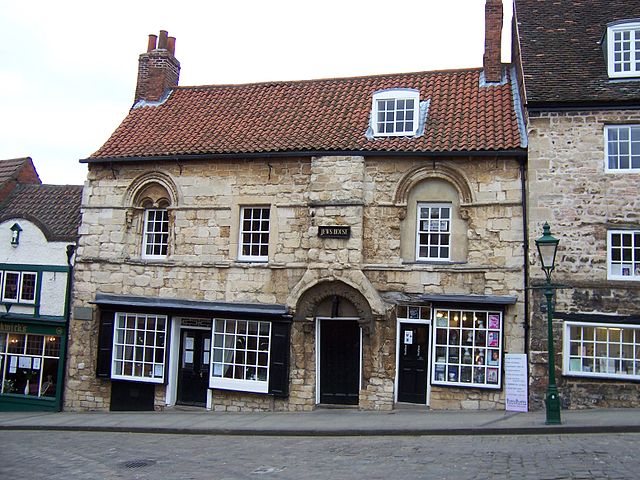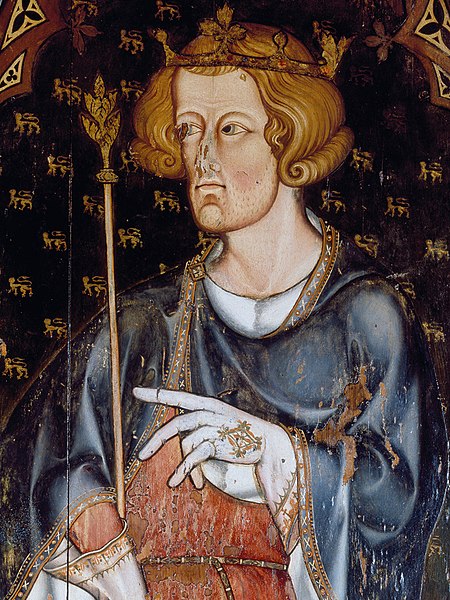History of the Jews in England (1066–1290)
The first Jews in England arrived after the Norman Conquest of the country by William the Conqueror in 1066, and the first written record of Jewish settlement in England dates from 1070. Jews suffered massacres in 1189–90, and after a period of rising persecution, all Jews were expelled from England after the Edict of Expulsion in 1290.
One of two surviving Jewish houses, the Jew's House in Lincoln, immediately below Jew's Court.
Clifford's Tower, where the Jews of York were killed in 1190.
Edward I was the first English monarch to use antisemitism as an instrument of state policy
Extract of the Statute of Jewry, c. 1275
The Edict of Expulsion was a royal decree issued by Edward I on 18 July 1290 expelling all Jews from the Kingdom of England, the first time a European state is known to have permanently banned their presence. The date was most likely chosen as it was a Jewish holy day, the ninth of Ab, commemorating the destruction of Jerusalem and other disasters that the Jewish people have experienced. Edward told the sheriffs of all counties that he wanted all Jews expelled before All Saints' Day that year.
A contemporary illustration showing the expulsion of the Jews. Image shows the white double tabula that Jews in England were mandated to wear by law.
Extract of the Statute of the Jewry, c. 1275
167 and 169 King Street, The Music House, Norwich: one of two surviving Jewish houses dating from before the expulsion. Such properties were forfeit and sold or gifted by the Crown.
Edward I used antisemitism as an instrument of state policy.






